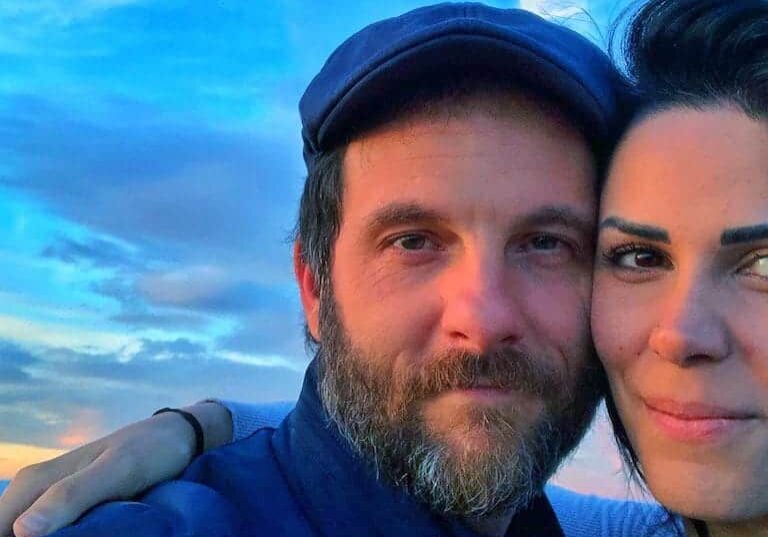As a child I learned to not need much – or at least pretend I didn’t.
Like many kids I had great parents who loved me, kept me safe and provided for.
Also like many kids, I experienced a consistent absence of empathetic emotional attunement from the adults around me.
So when my sensitive little boy nature felt hurt or upset, it was rare that an adult stepped in to help normalize what I was feeling, help me feel it, and how to regulate my feelings, especially the uncomfortable ones, like anger, sadness, and fear, in healthy, constructive ways.
Instead I mostly learned to soothe myself.
I instinctively learned not to rely on anyone else for emotional comfort or support, no matter what difficulty I was experiencing in a moment. This became a practice of pretending (and believing) that I don’t have emotional needs, which naturally swept into all my adult relationships.
The echoes of childhood reverberate throughout adulthood.
Like a circus sword-swallower unbothered by the jagged edges of a long blade slithering down his throat, I became expert at swallowing my needs, desires, concerns, and upsets. I became adept at overlooking hurtful things and soothing myself in all kinds of ways (both healthy and not so much) outside of the relational dance.
So even if someone – a girlfriend, my dad, a friend – only offered relational breadcrumbs, well, that was fine by me! Anyway, my gullet was always blocked by that rusty sword I kept shoved down there.
I could make a feast of breadcrumbs.
Until I couldn’t.
In my early 40s I started to realize I was “relationally starving” inside a few of the most important relationships of my life – most notably, for example, with my father.
I started to see that our relationship seemed only to happen on his terms. Whenever we spoke he’d share all about his world, his ideas, adventures, and beliefs, yet never ask or show any real curiosity about mine. He would judge me harshly for not living up to his expectations, once even calling me “incompetent” when I didn’t want to do what he wanted me to do. When I was 30, again upset that I wasn’t living his vision for my life, he stood over me and assured me with a stern look in his eyes that I would fail to live to my potential in this lifetime. He also rejected multiple women that I loved, judging them unworthy of me, but then became utterly perplexed at why that might upset me.
To be clear … I don’t write this to make my father look bad or malign his character. No man is perfect and many suffer far worse fates with their fathers. I know he did his best, and even what he thought was right. I’ve done a lot of therapy and forgiveness work on this. I’m at peace with him. I only share these things to illustrate a fraction of the emotional pain I swallowed for so many years because I didn’t know how to be a skillful stand for my own needs in any relationship, and how that flowed through every relationship of my adulthood.
Naturally, he wasn’t the only person I experienced this with. This is how I functioned throughout my relational landscape for decades.
Here’s the vital lesson of this story:
I was clueless about how to vulnerably share my real experience with my father, or anyone. I couldn’t skillfully communicate what I wanted/needed from any relationship. I hoped for the best and then took what I got. I too often pretended all was well when it really wasn’t. And then I would finally rage when I just couldn’t take it anymore, which just made me look like the unhinged crazy person.
You just can’t keep swallowing your own needs and then expect to feel nourished by the relationship. A relationship in which only your partner’s needs get met isn’t a relationship – it’s indentured servitude.
As I slowly woke up to all this, I first started experimenting with allowing myself to have needs that might be inconvenient or awkward for others. It was terrifying at first. But I knew, if I was going to have truly epic relationships, that I had to be willing to let people go who couldn’t (or didn’t want to) dance with me in this way.
As I began allowing myself to have needs and learn how to skillfully express them, relationships with people who actually wanted to know the authentic me began to flourish in profound ways.
Connection deepened with people who actually wanted to hear what I needed to communicate, even if it was uncomfortable or inconvenient to hear.
Safety was slowly kindled with those who showed they were actually curious about me as a person: what I was passionate about, what I knew of the world, and my greatest triumphs as well as the sadnesses I carried in my secret heart.
Trust naturally grew with people who could work through disagreement and conflict with me, because when two people are committed to ensuring that both feel nourished by the relationship, they can get through anything together!
Sadly, a few people whom I still love – including my father – couldn’t tolerate me having needs, feelings, or my own perspectives, at least not ones they didn’t like or agree with.
They couldn’t hear my actual voice through the clamor of their own judgments of me (or of themselves).
They couldn’t see past their small stories of me to the actual man before them.
They couldn’t navigate the disharmony that can naturally arise in an instant when we’re being real about our experiences with each other.
So, I just stopped showing up for those relationships.
I don’t say that I’ve “cut anyone out of my life.”
I’ve simply chosen to stop pursuing relationships with people who aren’t clearly interested in relationship with the authentic version of me.
I’ve finally learned that attempting to do relationship with someone who is “relationally unavailable” is just self-inflicted torture.
Here’s 5 signs you may be in a relationship with someone “relationally unavailable”:
- They’re unwilling to take responsibility for their part in breakdowns between you.
- They don’t make space for your needs, desires, sensitivities, concerns to exist.
- They’re unwilling to be influenced by your ideas, perspectives, desires.
- They see and relate to everything that happens mostly through how it affects them.
- They show little or no curiosity about you (after you’ve given repeated feedback asking for that).
So, ask yourself:
Where might you be pursuing relationship with someone who won’t take responsibility for their part in any breakdowns?
Where might you be quietly chasing the presence of someone who shows little or no real curiosity about you (yet loves sharing all about themselves)?
Where might you be making a generously cavernous space for someone else’s needs, desires, ideas, and so on, while stuffing yours inside that tiny little heart-shaped box you keep in your pocket?
What might be your part? Have you skillfully communicated the what you need them to know about you? Are you sure?
What’s all this bring up for you?
- 0shares
- 0Facebook
- 0Twitter
- 0Pinterest
- 0Email





Leave a Comment